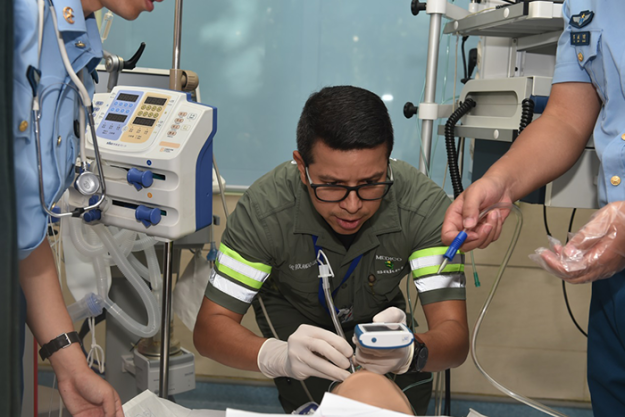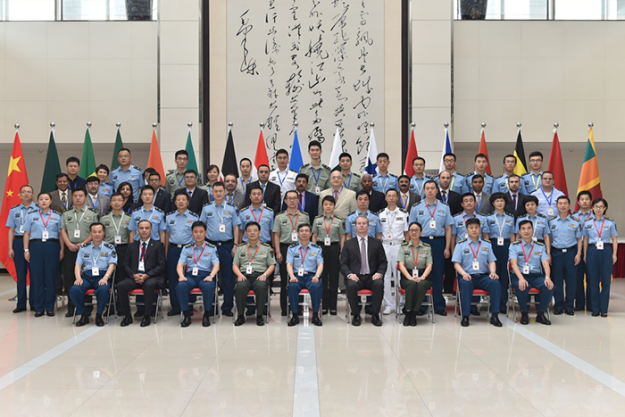
Medical professionals at a training on medical management of chemical casualties
THE HAGUE, Netherlands – 29 September 2017 – Medical professionals from around the world successfully acquired new skills during a training on medical management of chemical casualties held in the Fourth Military Medical University in Xi’an, China from 18-22 September 2017.
The training course was designed to equip medical professionals with skills in advanced hospital care for victims of chemical weapons and incidents involving toxic chemicals and was organised by the Technical Secretariat of the Organisation for the Prohibition of Chemical Weapons (OPCW) and the Government of China.
OPCW’s Head of Assistance and Protection Branch, Mr Shawn DeCaluwe, underlined the important role the participants could have to play in the event of a chemical incident stating that, ’’It is my heartfelt hope that if faced with unfortunate circumstances requiring treatment of chemical victims, the skills and knowledge imparted to you will be useful and serve to alleviate their suffering.”

The training participants
The course was a combination of theoretical and practical training that took place in a hospital, simulation centre, and laboratory. The participants learned about types and health effects of chemical warfare agents and other toxic chemicals and medical countermeasures including triage, hospital care for chemical casualties, mass casualty incidents, and the correct use of individual protection equipment. The training was concluded with a table top exercise on emergency medical response to a chemical incident.
The course was attended by 26 participants from 16 OPCW Member States: Bangladesh, Benin, Brazil, China, India, Iran, Kenya, Lebanon, Moldova, Pakistan, Panama, Philippines, Sudan, Uganda, Syria, and Sri Lanka.
Background
As the implementing body for the Chemical Weapons Convention, the OPCW oversees the global endeavour to permanently eliminate chemical weapons. Since the Convention’s entry into force in 1997 – with its 192 States Parties – it is the most successful disarmament treaty eliminating an entire class of weapons of mass destruction.
Ninety-six per cent of all chemical weapon stockpiles declared by possessor States have been destroyed under OPCW verification. For its extensive efforts in eliminating chemical weapons, the OPCW received the 2013 Nobel Prize for Peace.
